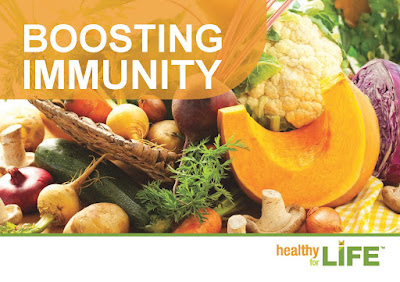We are officially coming into the winter months now and a step closer to Christmas! However this also means the dreaded flu season is upon us. With sickness bugs beginning to spread like wildfire it is important to keep your immune system in tip top shape in order to minimize risk of catching the flu!
Not sure where to start? No need to panic as we have great tips and tricks available in our new Healthy For Life Guide "Boosting Immunity" including what foods to to eat, vitamins to be aware of and a guide to your fitness over winter too.
We also have a very comforting and hearty soup recipe for Thai Chicken & Sweet Potato, full of nutritional value and a perfect boost for your immune system!



















